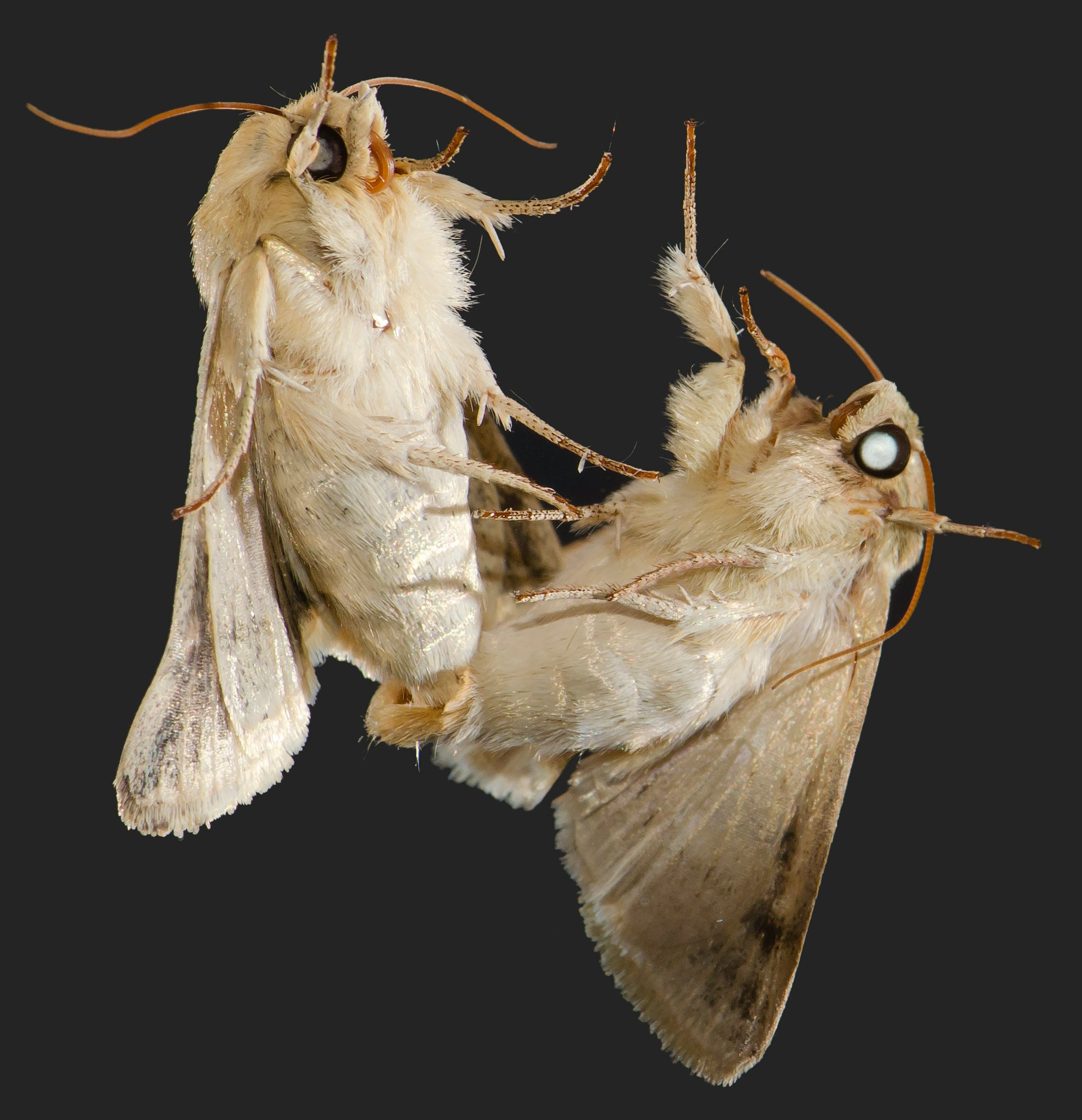
Chewing gum companies might be on to something. At least, as long as you stick to spearmint-flavored gum — and you are a moth.
This flavor appears to be nature-approved when it comes to attracting and seducing a mate. A new paper published today in the journal Current Biology describes the sophisticated chemical cocktail that comprises the aphrodisiac pheromone in the male moth species Chloridea virescens, a.k.a. the tobacco budworm moth.
Senior author Coby Schal, an urban entomology professor at North Carolina State University, wrote to Inverse that female and male moths produce pheromones that resemble each other but are also distinct. Females create their blend exclusively from fatty acids in a very precise chemical ratio. Males, on the other hand, use a combination of alcohols, aldehydes, acetates, and carboxylic acids.
In the new paper, Schal and his team identified two additional compounds that seem to occur in most male pheromones: aliphatic polyunsaturated hydrocarbons and plant compounds, including methyl salicylate (MeSA) which comes from the plant hormone salicylic acid. MeSA is also known as wintergreen oil, an ingredient also in spearmint gum. All of these compounds come from the male moth’s diet.
Schal says that he was surprised “the male pheromone contained such a broad range of compounds. While plant-derived pheromones are common in butterflies (they often eat chemically defended plants, like the monarch butterfly that feeds on milkweed, and convert these compounds to pheromones), moths are not known to do this.”
He says that entomologists have rigorously investigated the chemistries of male and female moth pheromones. This budworm moth, in particular, has been of interest to dozens of entomologists for decades, as the moth is known to be an agricultural pest in tobacco fields.
The team also believes that the male’s signature scent could serve different functions depending on who perceives it. When picked up by females, it could act as an aphrodisiac and a chemical message that biases mating choices. But when other males get a whiff, it could act as a repellant.
Because they’re nocturnal, moths have evolved communication patterns through pheromones and sounds. (Butterflies, by contrast, are mostly active in the daytime, so visual traits like color patterns and body shape work to their advantage in their rules of attraction.) Schal explains that this chemical communication between moths follows a script. Females catch a male’s attention from kilometers away with their volatile chemical signals. That way, it’s up to the male to dodge predatory bats on his way to a potential mate, letting the female wait safely.
But once he arrives, it’s not a done deal. The male must now entice the female. Palpable at a short range, his chemical signals “convey his vigor and prevent other males from interfering with his business,” Schal writes. This short-range courtship in moths remains poorly understood among entomologists. The team also shows that female antennae are tuned in to the chemical signals from MeSA, which is why the pheromone is so persuasive when it comes to choosing a mate.
Schal and his team demonstrate in this study that MeSA increases a male moth’s chances of mating. The team raised the experimental cohort of male tobacco budworm moths in a laboratory on a diet low in MeSA. The control group came from soybean fields and had much higher levels of the compound. When the experimental cohort tried to court females, their mating frequency was lower than average. Further, when the control males courted females, they depleted their MeSA reserves, which shows they emitted the chemical during their display.
Humans have caught on to MeSA’s charms, too. It’s common in the perfume and food additive industries. Unfortunately for us, courtship is a bit more complicated. We need to do a little more than blow some wintergreen scents in a crush’s face.







